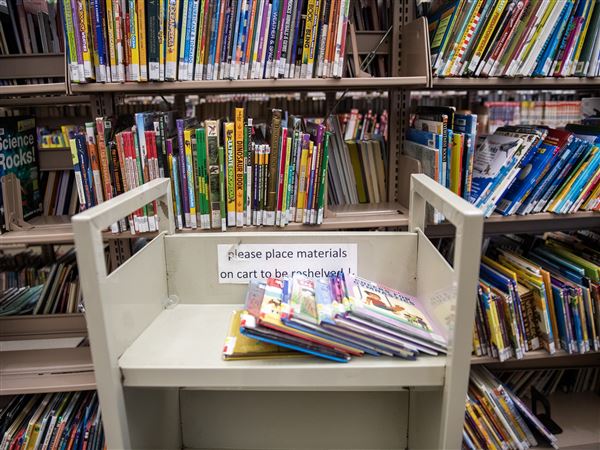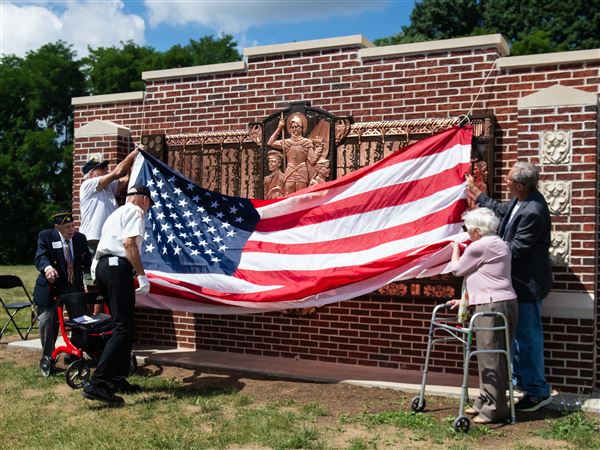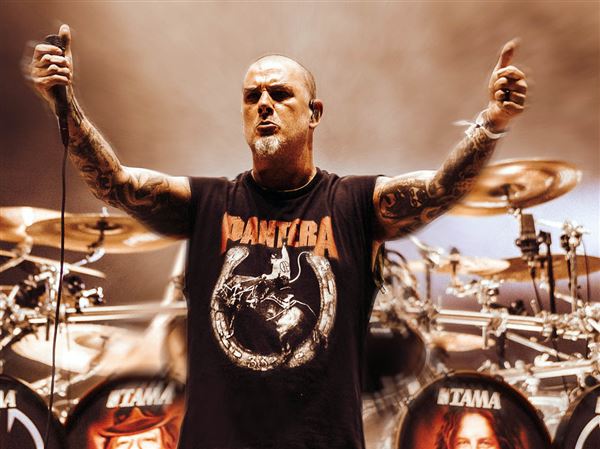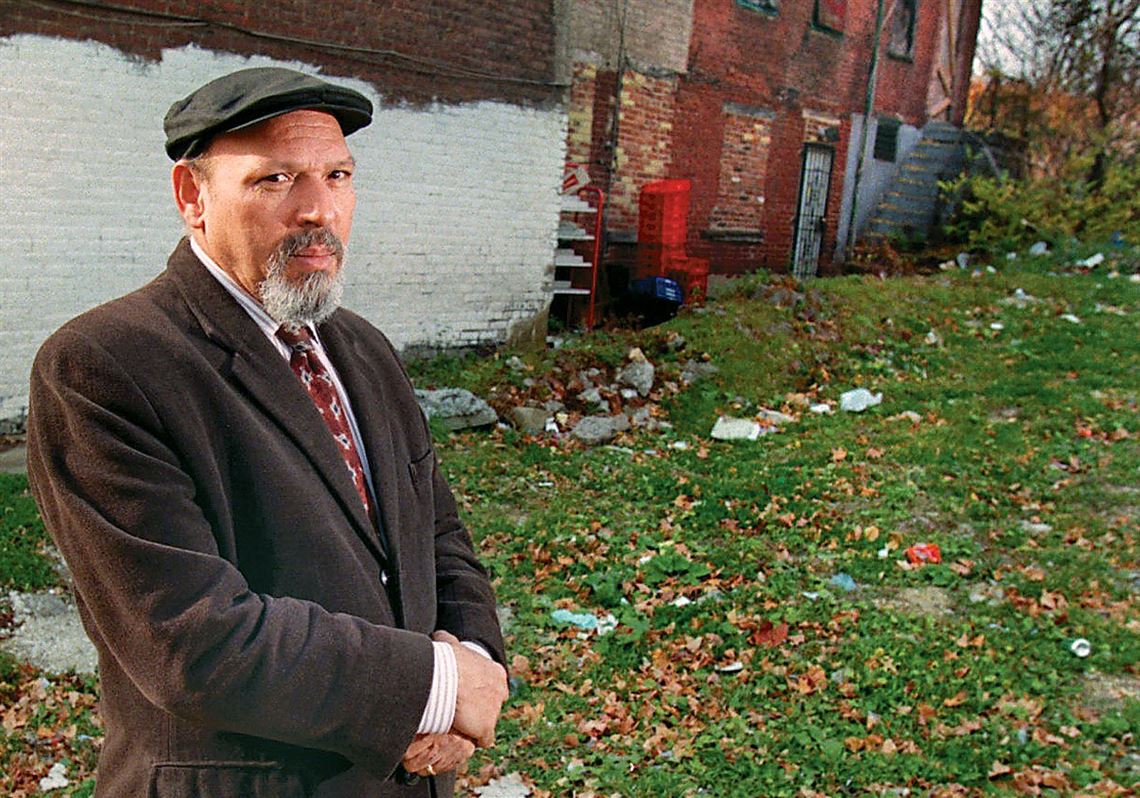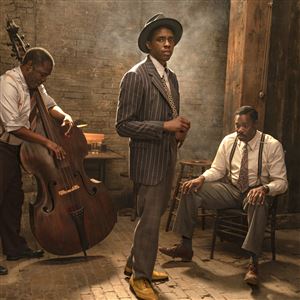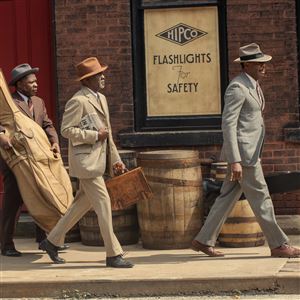It’s been worth waiting for, and I’m pretty sure August Wilson would agree.
Denzell Washington has finally brought “Ma Rainey’s Black Bottom” to the screen. The robust drama, whose other producers include August Wilson’s widow, Constanza Romero, has been feelingly translated by director George C. Wolfe and screenwriter Ruben Santiago-Hudson.
Wolfe is relatively new to directing August (as I learned to call him), but Santiago-Hudson is steeped in him as actor, director, collaborator and friend. Together with a remarkable cast, they realize both the tragic bones and rich, tangy language of the play while letting the story, characters and cultural context be realized in cinematic terms.
Of course as a longtime theater critic, I’m a partisan of the play. I’ve seen 11 productions, seven in Pittsburgh, and while I admire the 96-minute movie’s inventive additions, I do miss some of what’s been necessarily omitted from the 2½-hour play.
When “Ma Rainey” erupted on Broadway in late 1984, it made a star of the explosive Charles Dutton as the trumpeter, Levee. He and Theresa Merritt, playing Ma, were nominated for Tony Awards as featured (i.e. supporting) actors, not leads – evidence of the confusion as to which story was at the heart of the play and what kind of play August had written.
I first met him at its Broadway debut on Feb. 16, 1985. That day is vivid in my memory for three things: the heart-breaking tragedy of the play, Dutton’s over-powering performance … and the intermission.
Act 1 ends with Levee’s shattering account of the brutal history of his mother and father. Tears in my eyes, I stumbled out to the sidewalk to regroup, and someone said, “You’re from Pittsburgh, aren’t you? Would you like to meet the playwright?”
He pointed down the sidewalk to August, puffing away at his inevitable cigarette. So I went to introduce myself.
“Oh, a critic!” he said, rearing back in mock consternation. “Oh, a playwright!” I replied, doing the same. We laughed and started talking about Pittsburgh.
That conversation grew into a friendship, continuing for 20 years until his 2005 death. I named his plays the Pittsburgh Cycle, since all but “Ma Rainey” are set in Pittsburgh (It’s since been named the American Century Cycle by his estate). When I asked why “Ma Rainey” isn’t set in Pittsburgh, he said, “Well, it was my first Broadway play and I’m from Pittsburgh, so I didn’t think it was important enough.”
My admiring but somewhat tentative review ran March 23; we didn’t treat it as breaking news. Pittsburgh was slow to get on the August Wilson bandwagon: Bill Gardner, then head of Pittsburgh Public Theater, was lukewarm about “Ma Rainey” – I think its rawness embarrassed him. The Public didn’t start doing August until “Fences” in 1989, and it didn’t do “Ma Rainey” until 1992, five years after it had its Pittsburgh premiere at Kuntu Rep, Vernell Lillie’s Black company.
I saw August again at the 2003 Broadway revival, with a now older and stouter Dutton trying to repeat his triumph, this time as a middle-aged Levee grasping at his last chance at stardom. The show didn’t catch fire, mainly (I’d say) because of Whoopi Goldberg’s stolid diva, without the earthy reality you see in Viola Davis in the film. I remember standing with August, director Kenny Leon and their colleague, Todd Kreidler, at the back of the Royale Theatre after a performance.
“Sometimes it just doesn’t work out,” August sighed.
He wouldn’t say that about this movie.
The differences between play and film start right off, with men running through Southern woods. I feared it was part of Levee’s horrific backstory, but it turns out they’re joining the crowd at a packed tent concert, its occupants body and soul deep in Ma Rainey’s blues.
Quickly the scene shifts north to Chicago, with Ma performing in a big theater with a larger band, and Levee (Chadwick Boseman) eyeing one of the sexy dancers. His bandmates notice, as does Ma, who doesn’t like him stepping into the spotlight with a lively improvisation. It’s a world of cinematic exposition in a few, dialogue-free minutes.
Other screenplay innovations are scenes where Black characters walk through the streets surrounded by antagonistic white stares and another at Ma’s hotel, where the well-heeled Black clientele stare at her, a rural performer, with condescension.
Telling innovations include a door Levee keeps trying to open and what he finally finds. The biggest is the ending tragedy. I won’t describe it, but there’s an added scene in the movie that doubles down on the white exploitation of Black talent, the theme of Ma’s and Levee’s stories throughout.
So whose story is it? Both, of course. The initial critical response back in 1984 (I’ve read over 75 reviews) was blinkered confusion about this split focus. The antagonism between Ma and Levee and the status struggles among the men don’t obscure that the stories of white oppression and rip-off run in parallel. It’s not just Ma’s black bottom that’s at risk.
This new ending does turn our gaze toward systemic racist exploitation and away from the play’s terminal personal tragedy. It’s a big difference, even though thematically justified by all August wrote. And the tragedy is heart-stirringly realized by Boseman’s skittish, vulnerable Levee, as overpowering on film as Dutton’s explosiveness was on stage. Both made me cry.
Among the dialogue cuts, I miss Slow Drag’s, the most country of the musicians. Gone is the ribald story of how he got his name and with it the depth of his and Cutler’s friendship. Lacking some of this rich banter, the early part of the movie is darker than the play.
But the cut I most regret comes at the end of Act 1, just after Levee’s shattering story. In both play and movie, there’s stunned silence. In the movie, Toledo plays a few somber piano notes. But in the play, Slow Drag takes his bass and sings:
“If I had my way.
If I had my way,
If I had my way,
I would tear this old building down.”
Christopher Rawson, a board member of the August Wilson House, is a senior theater critic for the Post-Gazette. Contact him at cchr@pitt.edu
First Published: December 11, 2020, 11:30 a.m.

